【2014年春季】牛津译林版 8B Unit 4 A good read Grammar 课件
文档属性
| 名称 | 【2014年春季】牛津译林版 8B Unit 4 A good read Grammar 课件 | 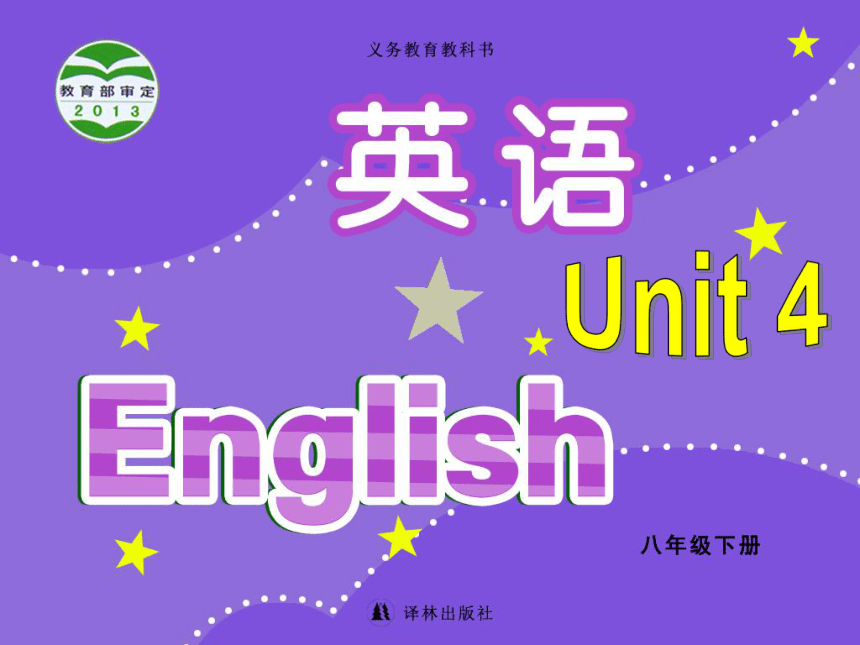 | |
| 格式 | zip | ||
| 文件大小 | 5.2MB | ||
| 资源类型 | 教案 | ||
| 版本资源 | 牛津译林版 | ||
| 科目 | 英语 | ||
| 更新时间 | 2014-03-27 14:09:06 | ||
图片预览

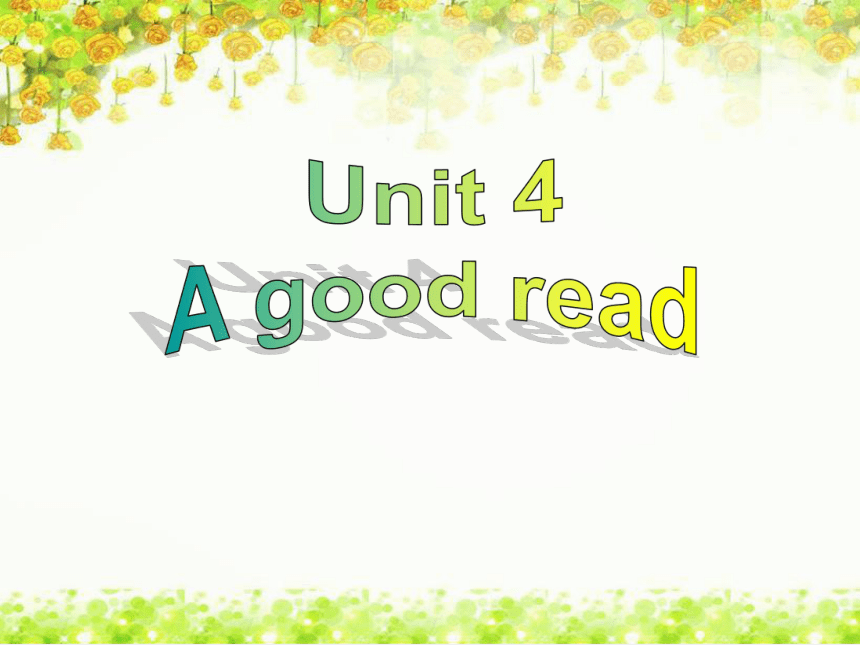
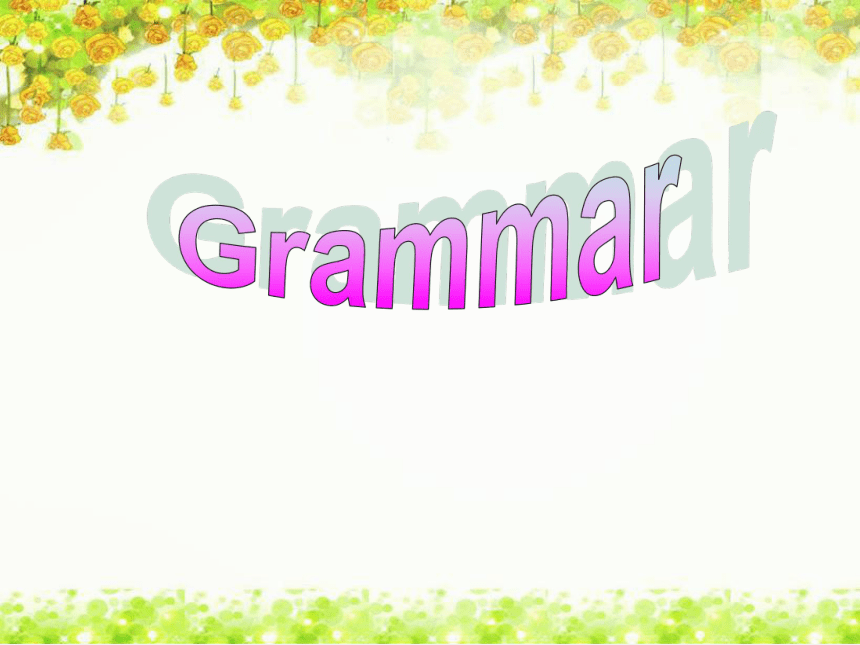
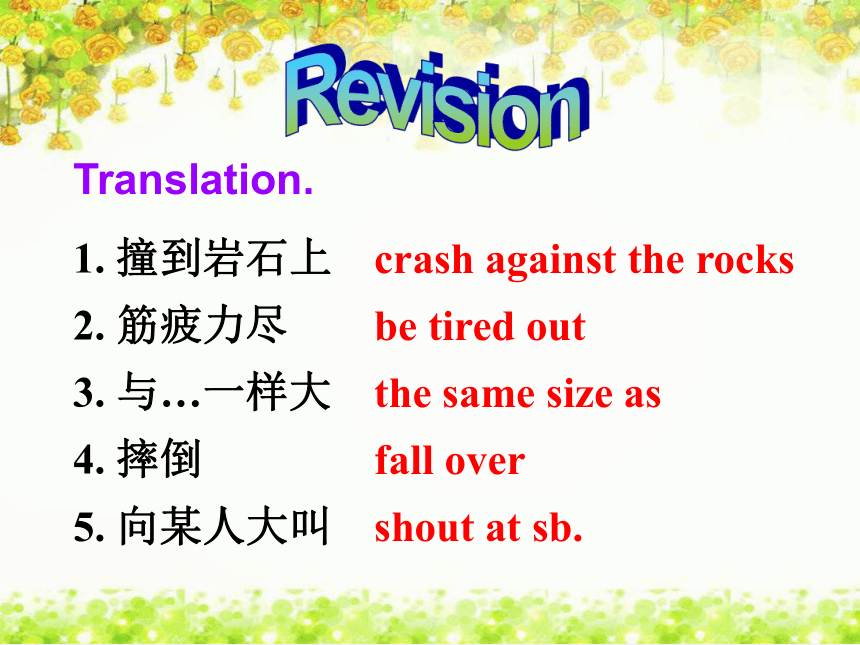
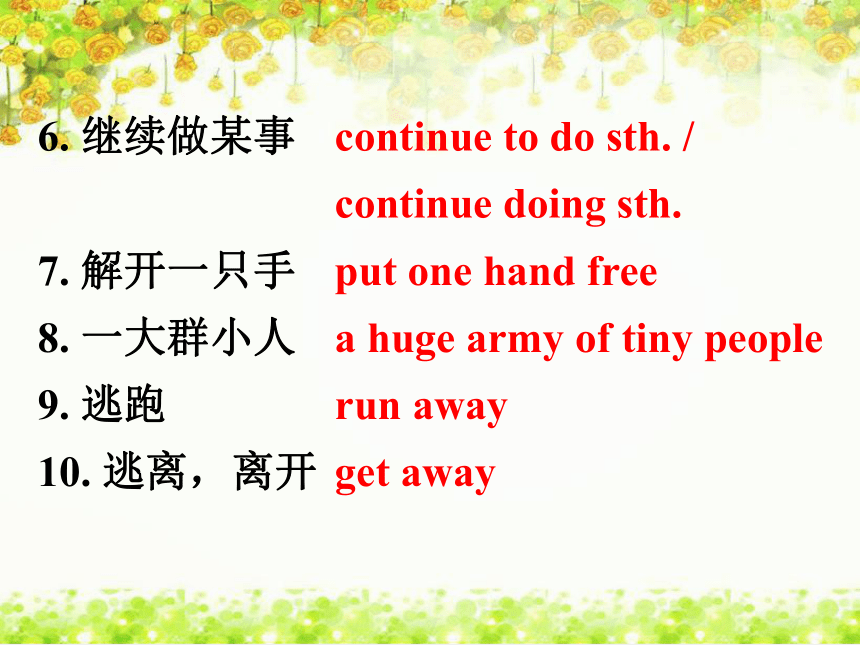
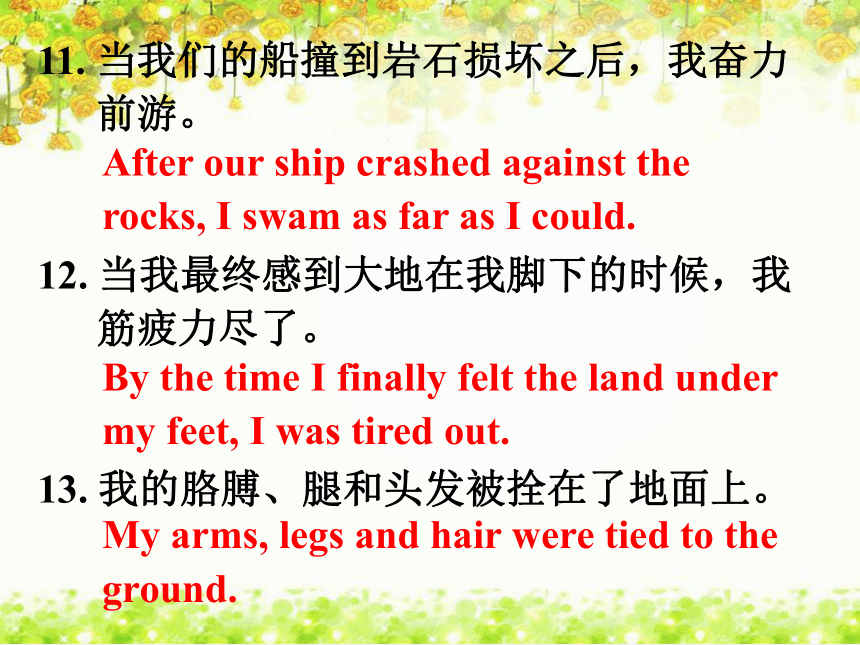
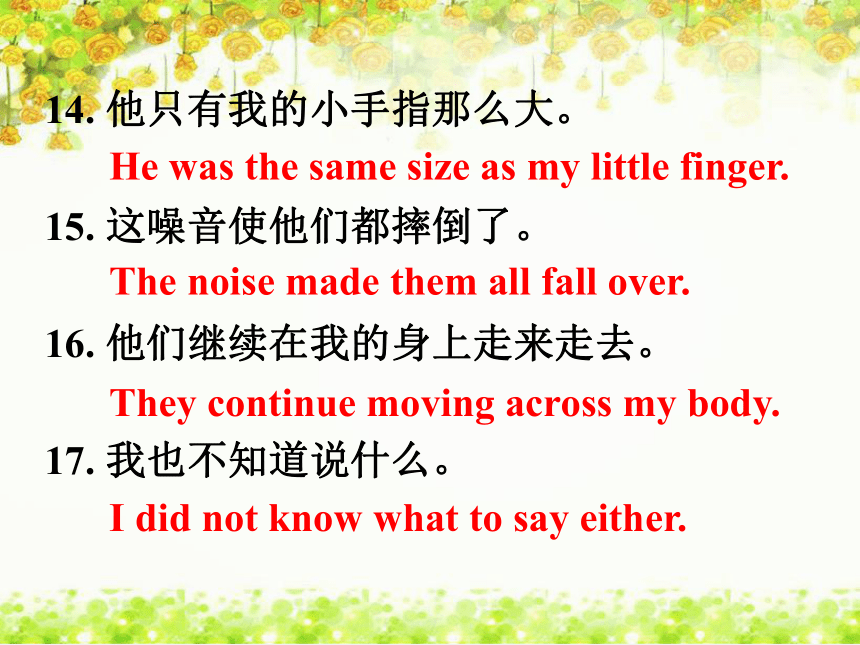

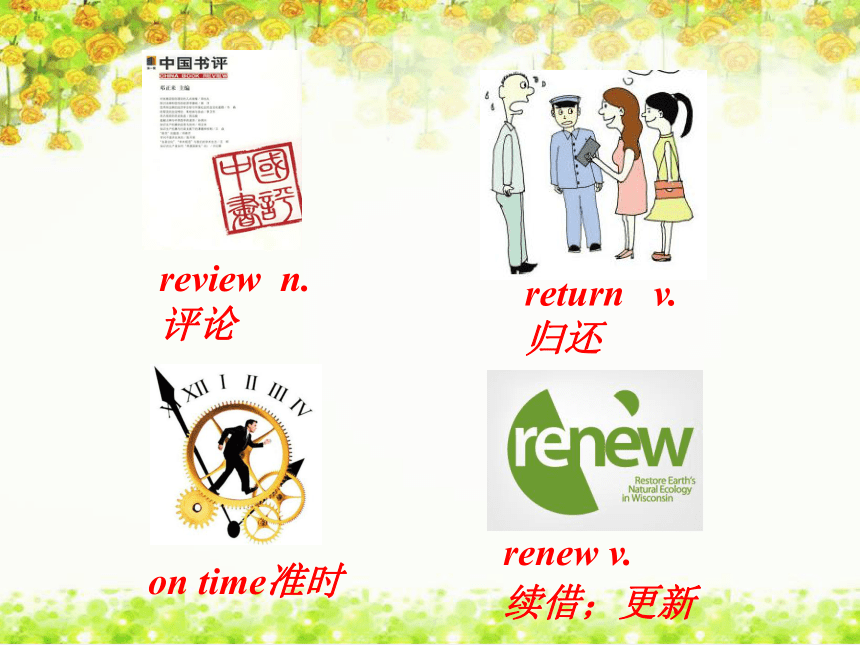
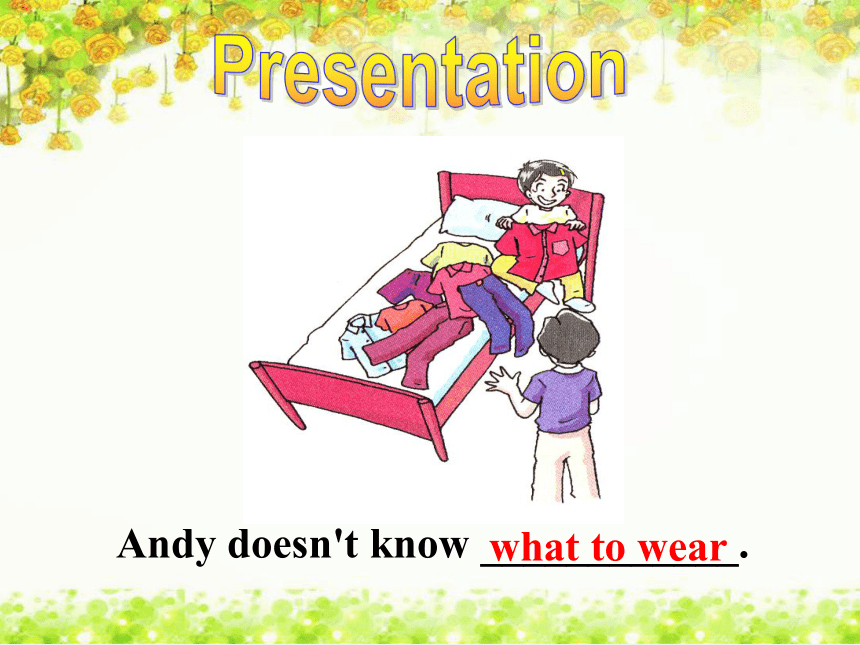
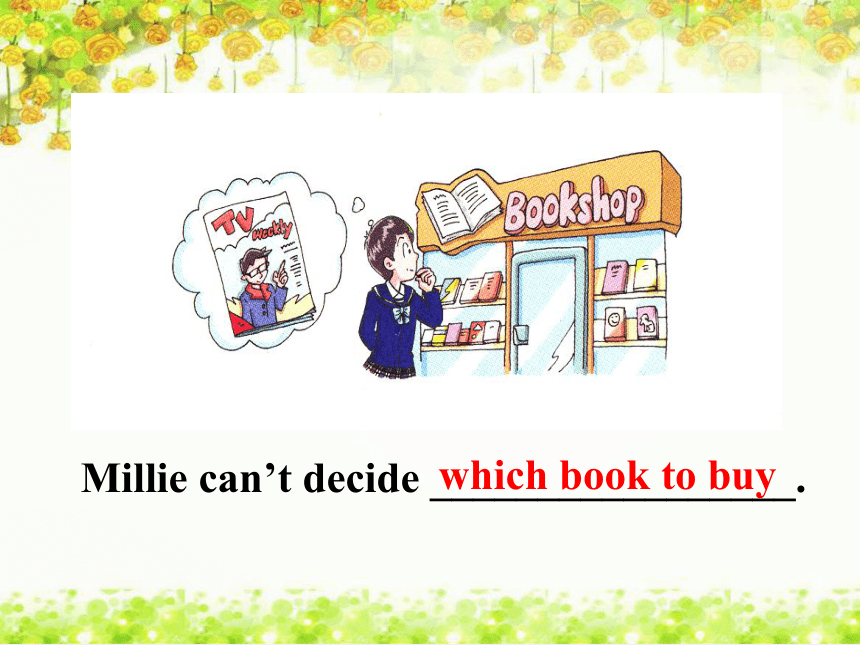
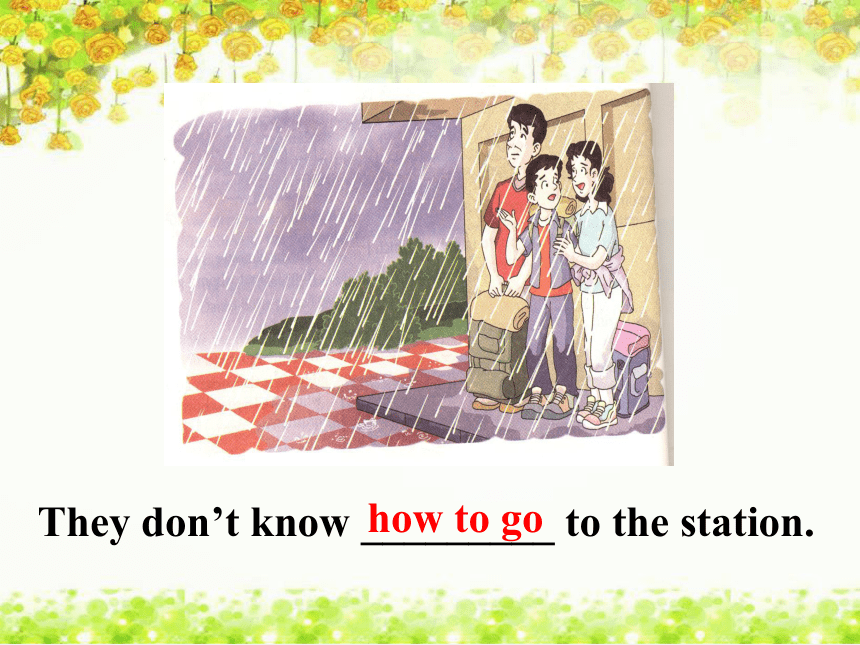
文档简介
课件39张PPT。Unit 4Unit 4
A good readGrammarTranslation.1. 撞到岩石上
2. 筋疲力尽
3. 与…一样大
4. 摔倒
5. 向某人大叫crash against the rocks
be tired out
the same size as
fall over
shout at sb.Revision6. 继续做某事
7. 解开一只手
8. 一大群小人
9. 逃跑
10. 逃离,离开 continue to do sth. / continue doing sth.
put one hand free
a huge army of tiny people
run away
get away11. 当我们的船撞到岩石损坏之后,我奋力前游。
12. 当我最终感到大地在我脚下的时候,我筋疲力尽了。
13. 我的胳膊、腿和头发被拴在了地面上。After our ship crashed against the rocks, I swam as far as I could. By the time I finally felt the land under my feet, I was tired out.My arms, legs and hair were tied to the ground.14. 他只有我的小手指那么大。
15. 这噪音使他们都摔倒了。
16. 他们继续在我的身上走来走去。
17. 我也不知道说什么。He was the same size as my little finger.The noise made them all fall over.They continue moving across my body.I did not know what to say either.New wordshand v.
交;递,给hand in
上交,递交review n.
评论return v.
归还renew v.
续借;更新on time准时Andy doesn't know ____________.what to wearPresentationMillie can’t decide _________________.which book to buyThey don’t know _________ to the station.how to goWe can use a question word with a to-infinitive after a verb.
e.g.
Millie has decided what to read.
Daniel did not say who to talk to about this book.
Simon forgot when to meet his friends.
Kitty cannot decide which to choose first.
Sandy is wondering where to ask for help.
Amy does not know how to write the report.All question words can be used in this way, except why.
Suzy will explain why to recommend
this book.
Suzy will explain why she recommend
this book.√×We can use a verb + object before a question word with a to-infinitive.advise, ask, decide, discuss find out, forget, know, learn remember, say, show, teach think, understand, wondere.g.
Mr Wu advised us which to choose as after-school activities.
The students asked their teacher when to hand in their work.
Millie showed us what to do next.
Daniel taught himself how to use a computer to draw.
Don’t forget to tell your mum where to meet you.We can use a noun after what, which,
whose, how many and how much.
e.g. They are discussing which color to paint the walls.
You can ask your parents how much money to take with you.We can also use an adjective like sure or
clear before a question word.
e.g. Suzy was not sure who to ask for help.
Are you clear when to meet at the
gate tomorrow?疑问词+动词不定式做动词的宾语。疑问词也包括疑问代词what, which, who和疑问副词how, when, where。常和此结构连用的动词及动词短语有:know, learn, see, hear, ask, tell, decide, explain, find out, forget, remember, understand 等。疑问词+动词不定式e.g. I don’t know what to say next.
我不知道接下来该说什么。
I can’t decide which to take.
我不能决定该那哪一个。
Please tell me how to go there.
请告诉我怎样到哪儿。“疑问词+动词不定式” 结构在句子中还可
以做主语和表语。
e.g. How to deal with the problem is
most important to us.
如何处理这个问题对我们来说是最
重要的。
The problem is when to leave the place.
问题是何时离开这个地方。“疑问词+动词不定式” 结构可以改写成由该疑问词引导的从句。
e.g. I don’t know what to do.
= I do not know what I should do.
我不知道该做什么。
注意:所有疑问句中,只有why不可以
与动词不定式连用。Amy and Daniel are talking about their Reading Week. Complete their conversation. Use the correct question words and to-infinitives.Amy: Mr Wu has recommended so many interesting books. Have you decided (1) ____________ first, Daniel?
Daniel: Yes. I want to read Black Beauty first. But I don’t know (2)
___________ the book.how, what, ask for, find
when, where, hand in, read
which, who, speak, travel, write about which to readwhere to findAmy: You can try our school library or
Sunshine Library. Oh, did you know Peter is reading Around the World in Eighty Days? He wants to find out (3) ____________ around the world in such a short time.
Daniel: Wow, that’s amazing! By the way,
can you tell me (4)______________
our book report?how to travelwhen to hand inAmy: Before next Friday. I’m still not sure (5) _________________ in the report.
Daniel: You can write anything about your book – what the book is about, what you think of it and so on. You should read some reviews about the book before writing.what to write aboutAmy: Thank you. Anyway, I know (6)
______________ help with writing. Mr Wu is always there to help us.who to ask forWe use must and have to to say that it is necessary to do something.
We use must when the speaker feels that something is necessary.
e.g. “I must run away from them,”
Gulliver thought.must & have to 用法We use have to when the situation makes
something necessary.
e.g. I have to use them to reach the box
on the fridge.
She has to take her daughter from
school in the afternoon.We use must not to say that something is not allowed.
e.g. You must not smoke in the library.
We use do not have to to say that it is not necessary to do something.
e.g. We do not have to go to school at
weekends.must 表主观的义务和必要,主要用于肯定句和疑问句,“必须,得,要”。
e.g. You must finish your homework
today. 你今天必须完成家庭作业。
must 的否定形式must not表示禁止,“不能,不行”。
e.g. You must not smoke here.
你不能在这里抽烟。小结have to 表一种客观的需要,“不得不”。have to 有人称和数的变化。
e.g. It is getting dark. He has to go home
now. 天快黑了,你现在得回家了。
have to 的否定形式do not have to, 相当于need not 。
e.g. They do not have to buy a computer at
the moment.
他们目前没有必要买电脑。e.g. He does not have to go.
他不必走。
注意:must 还可以表示肯定猜测,意思是
“一定” 。否定的猜测是can’t。
e.g. You must be hungry after all that
walking.
走了那么远的路,你一定饿了吧。
That can’t be Lucy. She has gone to
American.
那肯定不是Lucy,她已经去了美国。Amy is telling her cousin Shirley some library rules. Complete what she says with must, must not, have to or don’t have to. You (1) _____ keep quiet in the library.
You (2) _____ keep the books clean and tidy.
You (3) _______ draw or
write on the books .mustmustmustn’tYou (4) _______ eat or drink in the library.
You (5) _____ return the books on time. If you want to keep them longer, you (6) ______ renew them.
You (7) ____________ bring your student card every time you go to the library, but remember to bring your library card.mustn’tmusthave todo not have to一、完成下列句子。
1. I don’t know ______________________
(在会上说什么).
2. Can you tell me ___________________
(在哪里能买到这本书)?
3. _________________________________
(在何时何地召开这会议) hasn’t been
decided yet.what to say at the meetingwhere to buy this bookWhen and where to hold the meetingExercises1. When I go into the clothes shop, I always
can’t decide _____ one to buy.
2. My grandfather doesn’t know ____ to
use a computer.
3. --- Will you please show me ____ to drive
a car?
--- Yes, of course. Now let me tell you
____ to do first.
4. I will tell Lucy _____ and _____ to meet.whichhow howwhatwhenwhere二、用how, which, what, when, where填空。Remember the grammar in
this lesson.
A good readGrammarTranslation.1. 撞到岩石上
2. 筋疲力尽
3. 与…一样大
4. 摔倒
5. 向某人大叫crash against the rocks
be tired out
the same size as
fall over
shout at sb.Revision6. 继续做某事
7. 解开一只手
8. 一大群小人
9. 逃跑
10. 逃离,离开 continue to do sth. / continue doing sth.
put one hand free
a huge army of tiny people
run away
get away11. 当我们的船撞到岩石损坏之后,我奋力前游。
12. 当我最终感到大地在我脚下的时候,我筋疲力尽了。
13. 我的胳膊、腿和头发被拴在了地面上。After our ship crashed against the rocks, I swam as far as I could. By the time I finally felt the land under my feet, I was tired out.My arms, legs and hair were tied to the ground.14. 他只有我的小手指那么大。
15. 这噪音使他们都摔倒了。
16. 他们继续在我的身上走来走去。
17. 我也不知道说什么。He was the same size as my little finger.The noise made them all fall over.They continue moving across my body.I did not know what to say either.New wordshand v.
交;递,给hand in
上交,递交review n.
评论return v.
归还renew v.
续借;更新on time准时Andy doesn't know ____________.what to wearPresentationMillie can’t decide _________________.which book to buyThey don’t know _________ to the station.how to goWe can use a question word with a to-infinitive after a verb.
e.g.
Millie has decided what to read.
Daniel did not say who to talk to about this book.
Simon forgot when to meet his friends.
Kitty cannot decide which to choose first.
Sandy is wondering where to ask for help.
Amy does not know how to write the report.All question words can be used in this way, except why.
Suzy will explain why to recommend
this book.
Suzy will explain why she recommend
this book.√×We can use a verb + object before a question word with a to-infinitive.advise, ask, decide, discuss find out, forget, know, learn remember, say, show, teach think, understand, wondere.g.
Mr Wu advised us which to choose as after-school activities.
The students asked their teacher when to hand in their work.
Millie showed us what to do next.
Daniel taught himself how to use a computer to draw.
Don’t forget to tell your mum where to meet you.We can use a noun after what, which,
whose, how many and how much.
e.g. They are discussing which color to paint the walls.
You can ask your parents how much money to take with you.We can also use an adjective like sure or
clear before a question word.
e.g. Suzy was not sure who to ask for help.
Are you clear when to meet at the
gate tomorrow?疑问词+动词不定式做动词的宾语。疑问词也包括疑问代词what, which, who和疑问副词how, when, where。常和此结构连用的动词及动词短语有:know, learn, see, hear, ask, tell, decide, explain, find out, forget, remember, understand 等。疑问词+动词不定式e.g. I don’t know what to say next.
我不知道接下来该说什么。
I can’t decide which to take.
我不能决定该那哪一个。
Please tell me how to go there.
请告诉我怎样到哪儿。“疑问词+动词不定式” 结构在句子中还可
以做主语和表语。
e.g. How to deal with the problem is
most important to us.
如何处理这个问题对我们来说是最
重要的。
The problem is when to leave the place.
问题是何时离开这个地方。“疑问词+动词不定式” 结构可以改写成由该疑问词引导的从句。
e.g. I don’t know what to do.
= I do not know what I should do.
我不知道该做什么。
注意:所有疑问句中,只有why不可以
与动词不定式连用。Amy and Daniel are talking about their Reading Week. Complete their conversation. Use the correct question words and to-infinitives.Amy: Mr Wu has recommended so many interesting books. Have you decided (1) ____________ first, Daniel?
Daniel: Yes. I want to read Black Beauty first. But I don’t know (2)
___________ the book.how, what, ask for, find
when, where, hand in, read
which, who, speak, travel, write about which to readwhere to findAmy: You can try our school library or
Sunshine Library. Oh, did you know Peter is reading Around the World in Eighty Days? He wants to find out (3) ____________ around the world in such a short time.
Daniel: Wow, that’s amazing! By the way,
can you tell me (4)______________
our book report?how to travelwhen to hand inAmy: Before next Friday. I’m still not sure (5) _________________ in the report.
Daniel: You can write anything about your book – what the book is about, what you think of it and so on. You should read some reviews about the book before writing.what to write aboutAmy: Thank you. Anyway, I know (6)
______________ help with writing. Mr Wu is always there to help us.who to ask forWe use must and have to to say that it is necessary to do something.
We use must when the speaker feels that something is necessary.
e.g. “I must run away from them,”
Gulliver thought.must & have to 用法We use have to when the situation makes
something necessary.
e.g. I have to use them to reach the box
on the fridge.
She has to take her daughter from
school in the afternoon.We use must not to say that something is not allowed.
e.g. You must not smoke in the library.
We use do not have to to say that it is not necessary to do something.
e.g. We do not have to go to school at
weekends.must 表主观的义务和必要,主要用于肯定句和疑问句,“必须,得,要”。
e.g. You must finish your homework
today. 你今天必须完成家庭作业。
must 的否定形式must not表示禁止,“不能,不行”。
e.g. You must not smoke here.
你不能在这里抽烟。小结have to 表一种客观的需要,“不得不”。have to 有人称和数的变化。
e.g. It is getting dark. He has to go home
now. 天快黑了,你现在得回家了。
have to 的否定形式do not have to, 相当于need not 。
e.g. They do not have to buy a computer at
the moment.
他们目前没有必要买电脑。e.g. He does not have to go.
他不必走。
注意:must 还可以表示肯定猜测,意思是
“一定” 。否定的猜测是can’t。
e.g. You must be hungry after all that
walking.
走了那么远的路,你一定饿了吧。
That can’t be Lucy. She has gone to
American.
那肯定不是Lucy,她已经去了美国。Amy is telling her cousin Shirley some library rules. Complete what she says with must, must not, have to or don’t have to. You (1) _____ keep quiet in the library.
You (2) _____ keep the books clean and tidy.
You (3) _______ draw or
write on the books .mustmustmustn’tYou (4) _______ eat or drink in the library.
You (5) _____ return the books on time. If you want to keep them longer, you (6) ______ renew them.
You (7) ____________ bring your student card every time you go to the library, but remember to bring your library card.mustn’tmusthave todo not have to一、完成下列句子。
1. I don’t know ______________________
(在会上说什么).
2. Can you tell me ___________________
(在哪里能买到这本书)?
3. _________________________________
(在何时何地召开这会议) hasn’t been
decided yet.what to say at the meetingwhere to buy this bookWhen and where to hold the meetingExercises1. When I go into the clothes shop, I always
can’t decide _____ one to buy.
2. My grandfather doesn’t know ____ to
use a computer.
3. --- Will you please show me ____ to drive
a car?
--- Yes, of course. Now let me tell you
____ to do first.
4. I will tell Lucy _____ and _____ to meet.whichhow howwhatwhenwhere二、用how, which, what, when, where填空。Remember the grammar in
this lesson.
